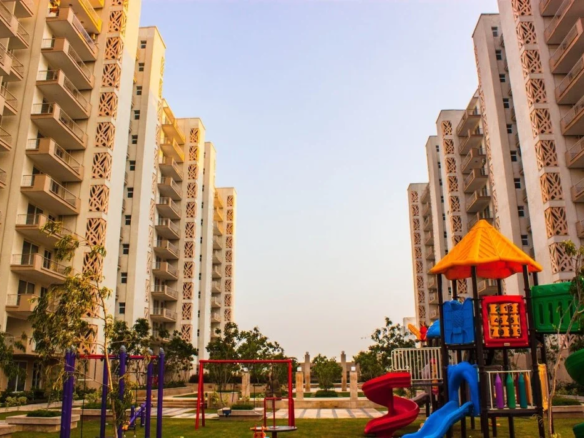Renting out property in Gurgaon, a rapidly growing urban hub, can be a lucrative opportunity. However, to ensure a smooth and legally compliant rental experience, it’s crucial to be aware of the legal considerations involved. This guide will walk you through the key legal aspects every landlord and tenant in Gurgaon should know.
1. Drafting a Comprehensive Rental Agreement
A rental agreement is the cornerstone of any rental transaction. It outlines the terms and conditions of the lease, ensuring that both parties are on the same page. Here’s what should be included:
- Rent and Payment Terms: Clearly specify the monthly rent, due date, mode of payment, and any late fees.
- Duration of Lease: Mention the start and end dates of the lease, along with the process for renewal.
- Security Deposit: State the amount of the security deposit, conditions for its return, and any deductions that may be made.
- Maintenance Responsibilities: Define who is responsible for property maintenance, including repairs and utilities.
- Notice Period for Termination: Specify the notice period required by both parties to terminate the lease.
Ensure that the agreement is signed by both parties and, if possible, registered with the local authorities to make it legally enforceable.
2. Understanding Rent Control Laws
Gurgaon falls under the jurisdiction of Haryana’s rent control laws, which aim to protect the rights of both landlords and tenants. Key provisions include:
- Rent Increases: Rent can be increased only as per the conditions mentioned in the agreement or as allowed under Haryana’s rent control regulations.
- Eviction: A landlord cannot evict a tenant without a valid reason. Common grounds for eviction include non-payment of rent, misuse of the property, or the landlord requiring the property for personal use.
- Security Deposit: While there’s no strict cap on the amount of security deposit that can be charged, it is usually one to three months’ rent. The deposit must be returned at the end of the lease, minus any agreed-upon deductions.
3. Registering the Rental Agreement
In Haryana, registering the rental agreement is not mandatory but is strongly recommended. Registration provides legal proof of the contract and makes it easier to enforce the terms in case of a dispute. The process involves:
- Stamp Duty: Payment of stamp duty based on the rent amount and lease duration. This is usually shared between the landlord and tenant.
- Submission to Local Authority: The agreement must be registered with the Sub-Registrar’s office, where both parties need to be present.
4. Tenant Verification
Before renting out your property, it is legally advisable to conduct a thorough tenant verification process. This includes:
- Police Verification: As per Haryana’s guidelines, landlords must submit tenant details to the local police station for verification. This helps ensure that the tenant has no criminal background.
- Background Checks: Verify the tenant’s employment, credit history, and references from previous landlords. This step, while not legally required, helps mitigate the risk of renting to an unreliable tenant.
5. Legal Remedies for Disputes
Despite all precautions, disputes between landlords and tenants can arise. Knowing your legal options is crucial:
- Rent Control Tribunal: Disputes related to rent, eviction, or lease violations can be taken to the Rent Control Tribunal in Gurgaon. The tribunal adjudicates these issues based on Haryana’s rent laws.
- Civil Court: For disputes beyond the scope of the Rent Control Tribunal, such as recovery of dues or damage claims, you can approach the civil courts.
- Alternative Dispute Resolution (ADR): ADR methods like mediation or arbitration can be quicker and less adversarial than court proceedings. These are worth considering for resolving minor disputes.
6. Compliance with Local Municipal Laws
Apart from state-level laws, landlords in Gurgaon must also comply with local municipal regulations:
- Property Tax: Ensure that property taxes are up to date, as non-payment can lead to penalties.
- Building Codes: The property should comply with Gurgaon’s building codes, including safety and occupancy standards.
- Waste Management: Adhere to local waste disposal and management guidelines, especially if you own multiple rental units.
7. Insurance Considerations
While not legally required, property insurance is a wise investment. Landlords should consider:
- Property Insurance: Covers damage to the building from natural disasters, fire, or vandalism.
- Liability Insurance: Protects against legal claims if someone is injured on the property.
For tenants, renter’s insurance is recommended to protect their personal belongings and liability.
Final Thoughts
Navigating the legal landscape of renting property in Gurgaon requires a thorough understanding of local laws and regulations. By drafting a comprehensive rental agreement, understanding rent control laws, conducting tenant verification, and being aware of legal remedies, landlords can minimize risks and ensure a successful rental experience.
For further guidance on managing your Gurgaon property, visit Gurgaon Rentals. Our expert team can help you with all aspects of renting, from finding the right tenant to ensuring legal compliance.




Join The Discussion